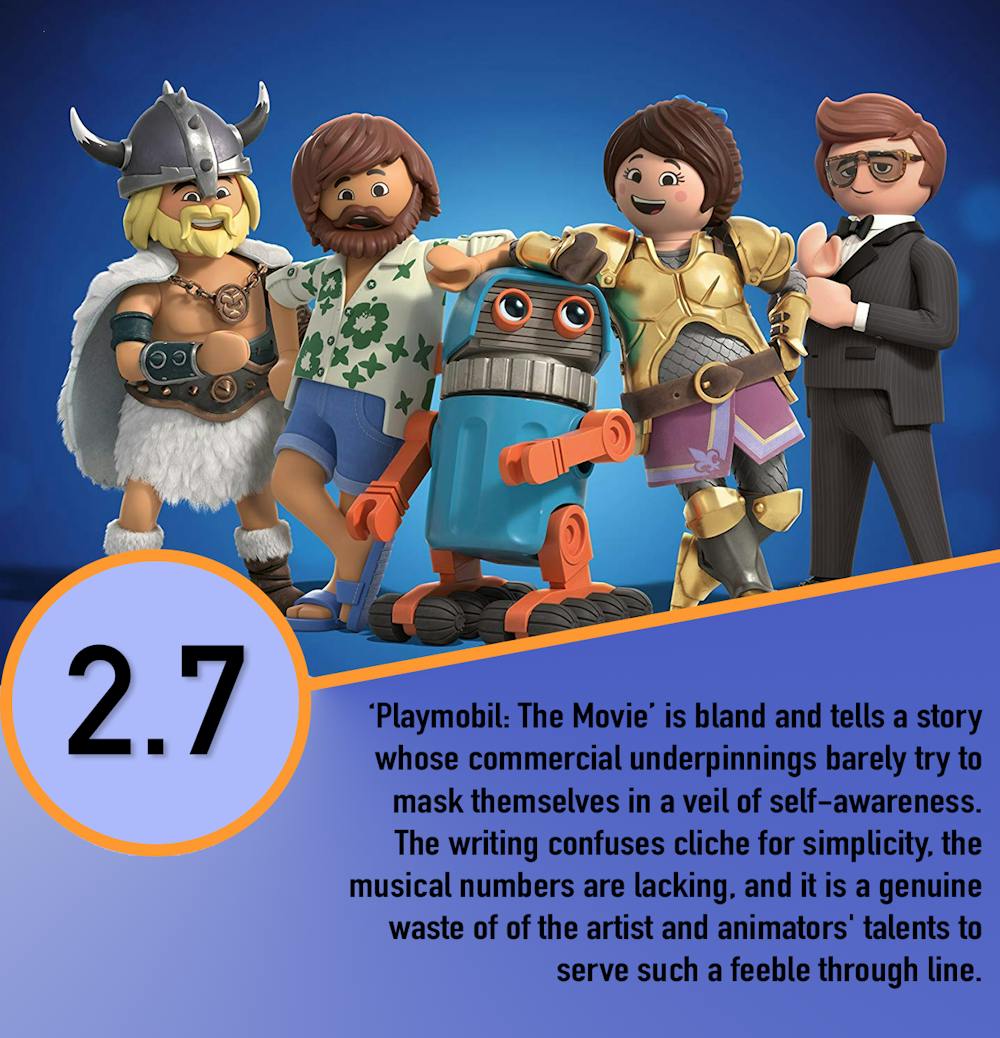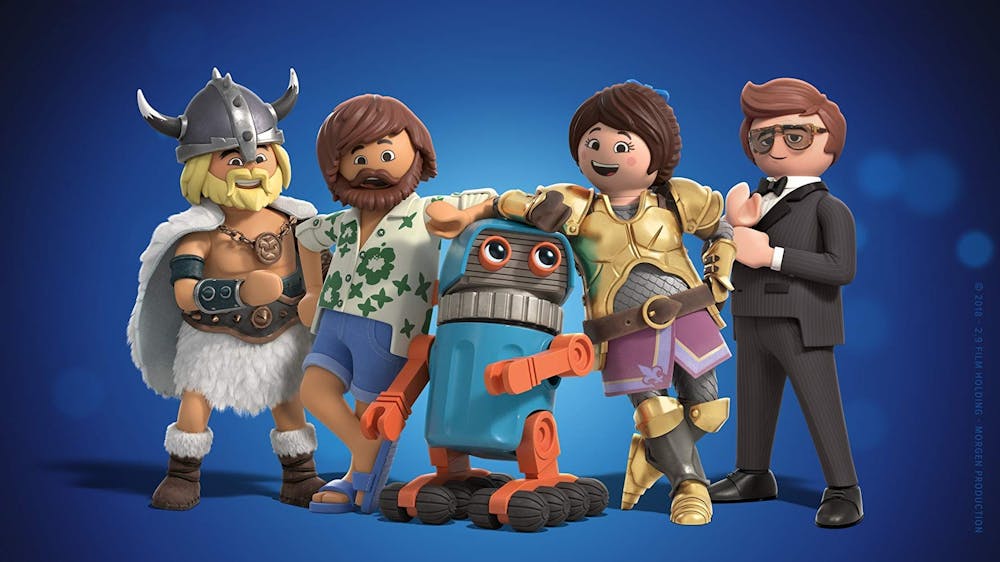With 2019 starting to wind down and some of its final films coming to the big screen, it’s worth noting the various accomplishments mainstream cinema has managed to achieve over the course of these last few months. Disney and Marvel released Avengers: Endgame, which went on to become the highest grossing film of all time. Disney and Pixar released Toy Story 4 to great critical acclaim and capped off the Toy Story saga (for now). Perhaps most importantly, Disney acquired 20th Century Fox and all of its entertainment assets, assimilating studios like Blue Sky and Fox Searchlight into the fold. This also brought the not-so-quiet cracking down of repeat screenings of older Fox films to give more space to things like The Lion King (2019) and Aladdin (2019), to the detriment of non-chain theaters across the country.
But for all the morally-questionable victories won this year, there’s another side of the coin. 2019 made itself home to four of the biggest bombs in cinematic history: Laika’s Missing Link, STX’s Uglydolls, and AMBI’s Arctic Dogs all made headlines for flopping in their widespread theatrical releases, each progressively worse than the last.
At least their U.S. releases weren’t delayed as a result of distributors going bankrupt, only for it to hit American theaters six months after being released overseas—at half the ticket price of their competitors. If I had to encapsulate everything wrong with the films I’ve seen this year into one neat, convenient package, it would be— without a doubt—Playmobil: The Movie.
Homer’s Odyssey (for dummies)
Playmobil: The Movie, directed by Lino DiSalvo, tells the “epic” story of Marla (Anya Taylor-Joy, in both live-action and animation) and her younger brother Charlie (Gabriel Bateman), who are sucked into a world of animated playthings in the extended aftermath of their parents’ sudden, off-screen car crash. When Charlie gets abducted by the buffoonish King Maximus (Adam Lambert) to participate in gladiatorial combat against a variety of archetypal characters, Marla is forced to assemble her own gang of generic goons to save her brother and learn a lesson (supposedly).

Image from IMDb
Before I even get into the hard specifics of Playmobil, I just have to say one thing about it: there is no hook. This is the same, basic “odyssey” plot you’ve seen a million times over, albeit sometimes yanking elements from movies like Finding Nemo and even the original Star Wars, either to pad out the runtime or otherwise try to remind you of better flicks you could be watching instead of Playmobil: The Movie. One could perhaps argue that other films —namely, The LEGO Movie—do the same thing in turn, relying on your knowledge of pop culture and how “chosen one” narratives tend to go in order to subvert your expectations; however, here’s the catch: The LEGO Movie subverts your expectations to both comedic and dramatic effect. Everything in Playmobil is played completely straight. You know where the story’s headed from the outset. You know that the space bounty hunter is going to act like the space bounty hunter, the pirate voiced by Kenan Thompson is going to act like a pirate voiced by Kenan Thompson, and that the vaguely culturally insensitive “Amazonian” is going to be vaguely culturally insensitive. It’s all expected…right down to the musical numbers.
By the way, if it wasn’t made obvious by the film’s marketing materials (which it wasn’t), Playmobil: The Movie is a musical, and not a very good one at that. On one hand, its music is comprised of narrative-heavy songwork, effectively setting dialogue to music and punctuating it with the occasional actual piece of musical theatre. On the other hand, Playmobil’s music is the same generic pop-electronic music that wouldn’t be out of place in a Disney Channel Original Movie. The only comparatively good song comes in the form of Maximus’s villain number, and even then, it’s just Adam Lambert ranting into a microphone and sounding like he’s auditioning for Joker 2: Joke Harder.
More jelly than plastic
The biggest problem at play is undoubtedly how the film looks visually. It’s not that the film looks bad in any way, mind you. The animated portion of the film looks crisp and clear, the colors are bright and vibrant, and the animation is professionally done.

Image from IMDb
But that’s it. Like everything I’ve said prior, it’s wholly the base-level minimum amount of effort for a movie of this caliber, and even then it still manages to disappoint. Everything has this plastic-y sheen and texture to it (because, toys), but everything also moves how things normally would, in the real world. The same goes for the characters themselves. To clarify, an actual Playmobil figure only has six points of articulation: it can bend at the waist, move its arms up and down, turn its hands left and right, and spin its head 360 degrees in either direction. In any other circumstance, this would make animating the characters in the film (all meant to be Playmobil figures) an interesting, if not complex, challenge for the filmmakers. It’s with that said that, beyond a single scene at the start of the film’s animated portion, the film decides to completely forgo the toy’s actual limitations in favor of animating the figures like you would a regular animated person.
I wholly realize this may be coming off as a nitpick, and that actively trying to figure out how to make these characters move according to the limitations of the actual figures would be far more trouble than it’s worth for Playmobil: The Movie of all things. However, it’s details like this that beg the question: were the numerous artists, designers, and animators even in the room when these decisions were being made?
Everything’s (not) awesome

Image from IMDb
Playmobil: The Movie is a perfect summation of everything wrong with the American family film in 2019. It speaks to the audience in the way that a youth pastor would, trying its darndest to remain “cool” and “hip” to trends that have either long past or were never truly in vogue to begin with. The story, the general design aesthetic, and even the music, all work in incoherent harmony to service a commercial that doesn’t even know what the selling point of its product is. Playmobil: The Movie is just as bland as the toys it features, and doesn’t do anything to convince you that it’s anything more than another brand for you to consume, along with the fifty-million other brands fighting for your attention at the movie theater. At least the LEGO movies had the common decency to have a purpose before cutting checks.

Images: IMDb
Featured Image: IMDb
For more entertainment related content, visit us at Byte BSU!




















